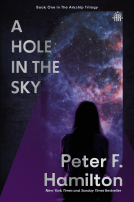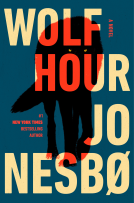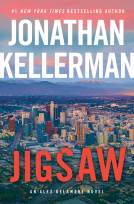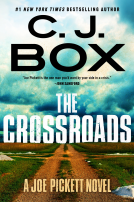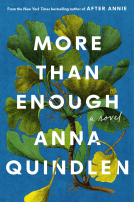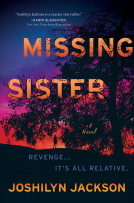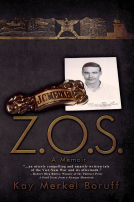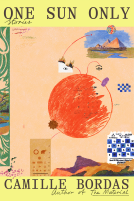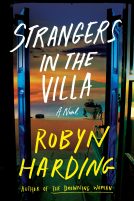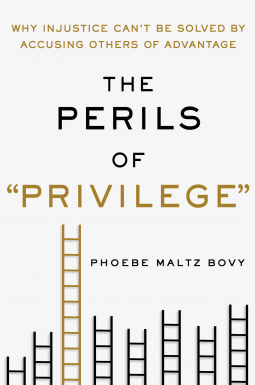
The Perils of "Privilege"
Why Injustice Can't Be Solved by Accusing Others of Advantage
by Phoebe Maltz Bovy
This title was previously available on NetGalley and is now archived.
Send NetGalley books directly to your Kindle or Kindle app
1
To read on a Kindle or Kindle app, please add kindle@netgalley.com as an approved email address to receive files in your Amazon account. Click here for step-by-step instructions.
2
Also find your Kindle email address within your Amazon account, and enter it here.
Pub Date Mar 14 2017 | Archive Date Jun 01 2017
Description
Top 50 Notable Works of Nonfiction in 2017–The Washington Post
“Privilege”—the word, the idea, the accusation that is nearly impossible to disprove—is the new rhetorical power play. From social media to academia, public speech to casual conversation, the word is utilized to brand people of all kinds with a term once reserved exclusively for those who came from wealth and old money—inherited advantage.
Today “privileged” applies to anyone who enjoys an unearned advantage in life, inherited or not. White privilege, male privilege, straight privilege—those conditions make everyday life easier, less stressful, more lucrative, and generally better for those who hold one, two, or all three designations. But what about white female privilege in the context of feminism? Or fixed gender privilege in the context of transgender? Or weight and height privilege in the context of hiring practices and salary levels? Or food privilege in the context of widening inequality for single-parent families?
In The Perils of “Privilege,” Phoebe Maltz Bovy examines the rise of this word into extraordinary potency. Does calling out privilege help to change or soften it? Or simply reinforce it by dividing people against themselves? And is privilege a concept that, in fact, only privileged people are debating? The Perils of “Privilege” explores how this word is deployed, and offers ways to begin anew so many of the conversations it has silenced.
Available Editions
| EDITION | Other Format |
| ISBN | 9781250091208 |
| PRICE | $26.99 (USD) |
| PAGES | 336 |
Average rating from 16 members
Featured Reviews
 David W, Media/Journalist
David W, Media/Journalist
The successor and spawn of political correctness seems to be “privilege”. Phoebe Maltz Bovy sees it everywhere. She says her book is about dismissing the concept, because it makes no sense and solves nothing. She proves it repeatedly, even creating arguments where none are necessary. It is a flat, straight line, and goes on far too long.
The accusation of privilege means your vision is clouded by your heritage and/or circumstances. So if you criticize hiring policies as reverse discrimination, you have to “check your privilege”, because your criticism is almost certainly tainted by your not being black or Asian or native or anything beyond white. This is an entire book on the online hysteria over privilege.
It seems that anything a writer can put a “non” before is potential privilege. Non handicapped, non cisgendered, non female, non educated, non employed, non poor, non colored, non subsidized, non elderly, non-divorced, … can taint anything uttered by its author. Troll attacks have increased, inspired by this tactic, and pile-on to authors who may or may not deserve it. The accusations flow freely, adding nothing to the argument, and of course, nothing to the solution. It’s a license to glibly invalidate anything, and if these examples aren’t enough, trolls can attack the privilege of the tall (non short), the beautiful (non attractive) and the slim (non fat), for example. Anyone fitting these descriptions apparently has no right to make any claims at all. Welcome to “community”, 2016-style.
To summarize, you can find a way to criticize anyone by pointing out their privileged status. You can criticize any work as coming from privilege. You can criticize any work for not considering privilege. You can criticize any criticism for not weighing privilege, and for weighing it, too.
The Perils of Privilege is a very longwinded polemic. Bovy interviews no one and sought no validation. The book ends up being a pop culture critique of critiques and the public comments to them. This is skimming rather than digging. What digging Bovy does is in semantics, hardly the strong point of commenting. She awards credibility where none is due, allowing her to argue rationally against nonsense and bigotry. There is an enormously long argument mid book as to whether Jews are privileged. If the concept is worthless, why accord it dozens of pages as it applies to Jews?
Bovy claims obliviousness is a normal human trait. We will never erase it. Calling it out constantly is at best an eyeroller. She says that her sentiment is to never see the word privilege again. After slogging through this book, where she seems to have searched for every silly instance of it, it is mine too.
David Wineberg


